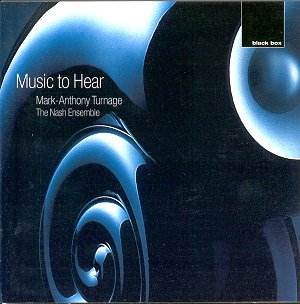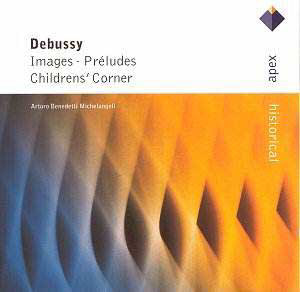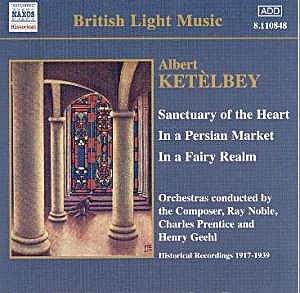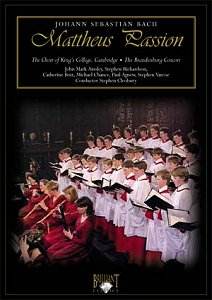 Composer: Mark-Anthony Turnage
Composer: Mark-Anthony Turnage
Works: Two Memorials, An Invention on “Solitude”, Sleep On, Cortège for Chris, Two Elegies Framing a Shout, Three Farewells, Tune for Toru
Performers: Martin Robertson (saxophone), members of The Nash Ensemble
Recording: Gateway Studios, London, February 2001
Label: Black Box BBM 1065
Mark-Anthony Turnage, born in 1960, has carved a significant niche in contemporary classical music, often celebrated for his orchestral works but possessing a substantial body of chamber music that reflects a more intimate and personal facet of his artistry. “Music to Hear” showcases a selection of his chamber compositions, many imbued with memorial significance, revealing the composer’s ability to convey profound emotional narratives through the subtle interplay of instruments. This recording serves as an essential exploration of Turnage’s oeuvre, illustrating how his music operates within the duality of public proclamation and private introspection.
The performances led by saxophonist Martin Robertson and the Nash Ensemble present Turnage’s works with an admirable blend of technical precision and emotional depth. In “Two Memorials,” for instance, the saxophone’s timbre is utilized to haunting effect, particularly in the first elegy, where Robertson’s phrasing captures both the stillness and the weight of memory. The gentle, almost whispering quality of the saxophone in these pieces underscores the reflective nature of the tributes, allowing the audience to feel the poignancy of loss without descending into overt sentimentality. Similarly, “Sleep On” for cello and piano reveals the duo’s ability to navigate the delicate balance between lyrical expressiveness and structural integrity, with the cello’s lines weaving through the piano’s harmonic support with a supple grace that lingers in the listener’s ear long after the final notes fade.
The recording quality from Gateway Studios is commendable, creating an intimate sonic environment that allows the nuances of Turnage’s subtleties to emerge clearly. The engineering captures the rich textures of the ensemble without sacrificing clarity. For example, in “An Invention on ‘Solitude’,” the interplay between the clarinet and the accompanying strings is rendered with such clarity that the listener can appreciate the intricate dialogues Turnage constructs, even as the piece alludes to the style of Brahms without direct quotation. The rich sonorities blend into a tapestry of sound that speaks to both the individual voices and the collective ensemble.
Turnage’s “Three Farewells,” the most expansive work in this collection, demonstrates the composer’s skill in utilizing larger forces while maintaining a chamber music sensibility. Each of its movements, inspired by literary texts, showcases a distinct emotional landscape. The “Chorale,” evoking a Brechtian reflection on mortality, is hauntingly beautiful, while “Music to Hear” employs a delicate conversation between viola and cello that exemplifies Turnage’s ability to weave lyrical lines into a cohesive narrative. The final movement, based on Auden’s translation of a duet from “The Magic Flute,” offers a bittersweet resonance that poignantly reflects on life’s fragility—an apt conclusion to a work steeped in both memory and melancholy.
Turnage’s chamber works, as demonstrated in this release, communicate through their understated simplicity and sincerity. The choice of instrumentation and the subtle interplay among the musicians allow for a profound emotional experience that resonates with the listener. Martin Robertson and the Nash Ensemble exhibit an acute sensitivity to Turnage’s language, playing with a blend of vigor and restraint that honors the composer’s intent. This recording stands as a significant contribution to the chamber music repertoire, showcasing the depth of Turnage’s artistry and the heartfelt expressiveness of his writing. The collection merits not only attention from those familiar with Turnage’s orchestral output but also invites exploration from audiences seeking to understand the full spectrum of his musical voice.



